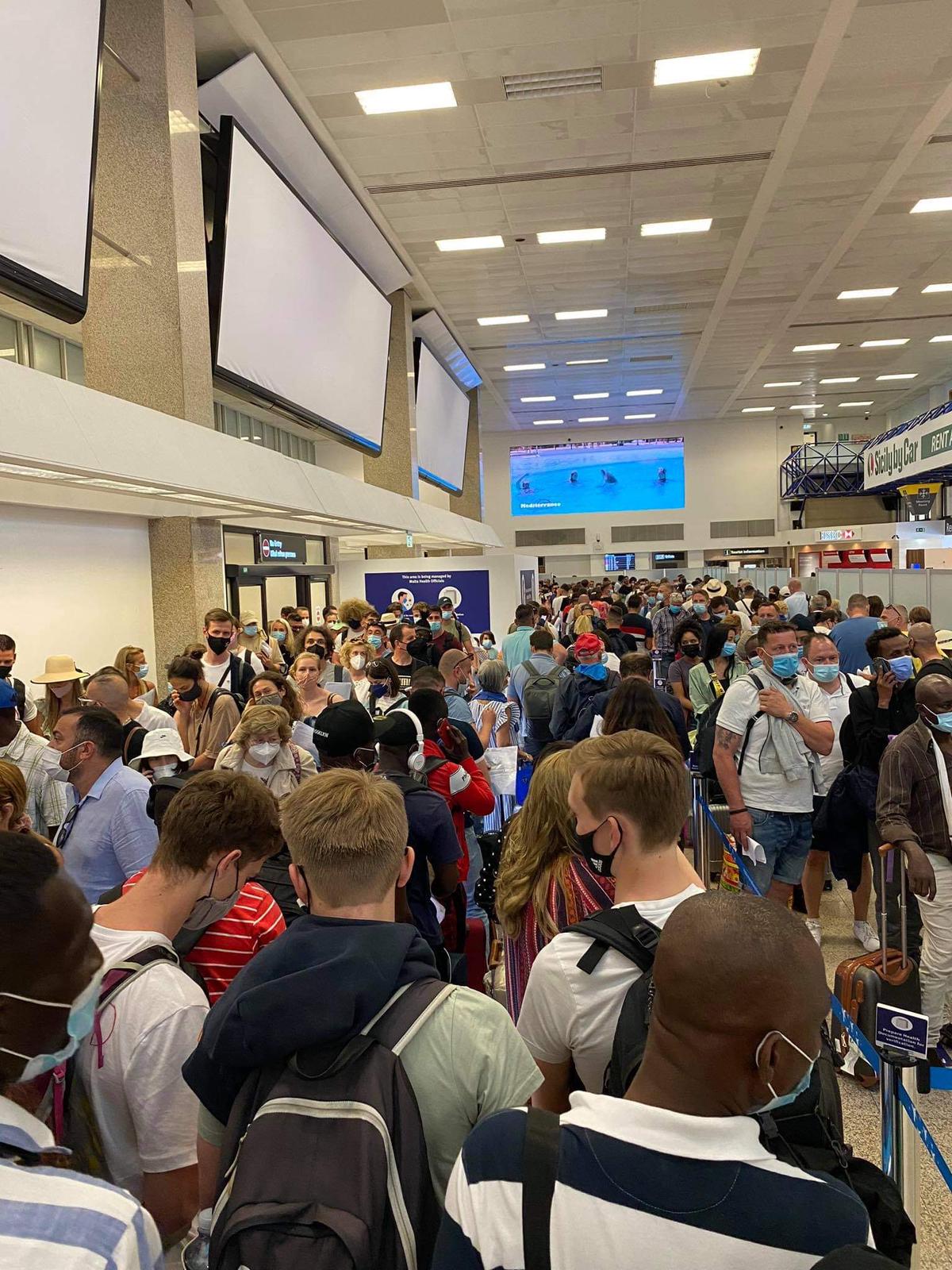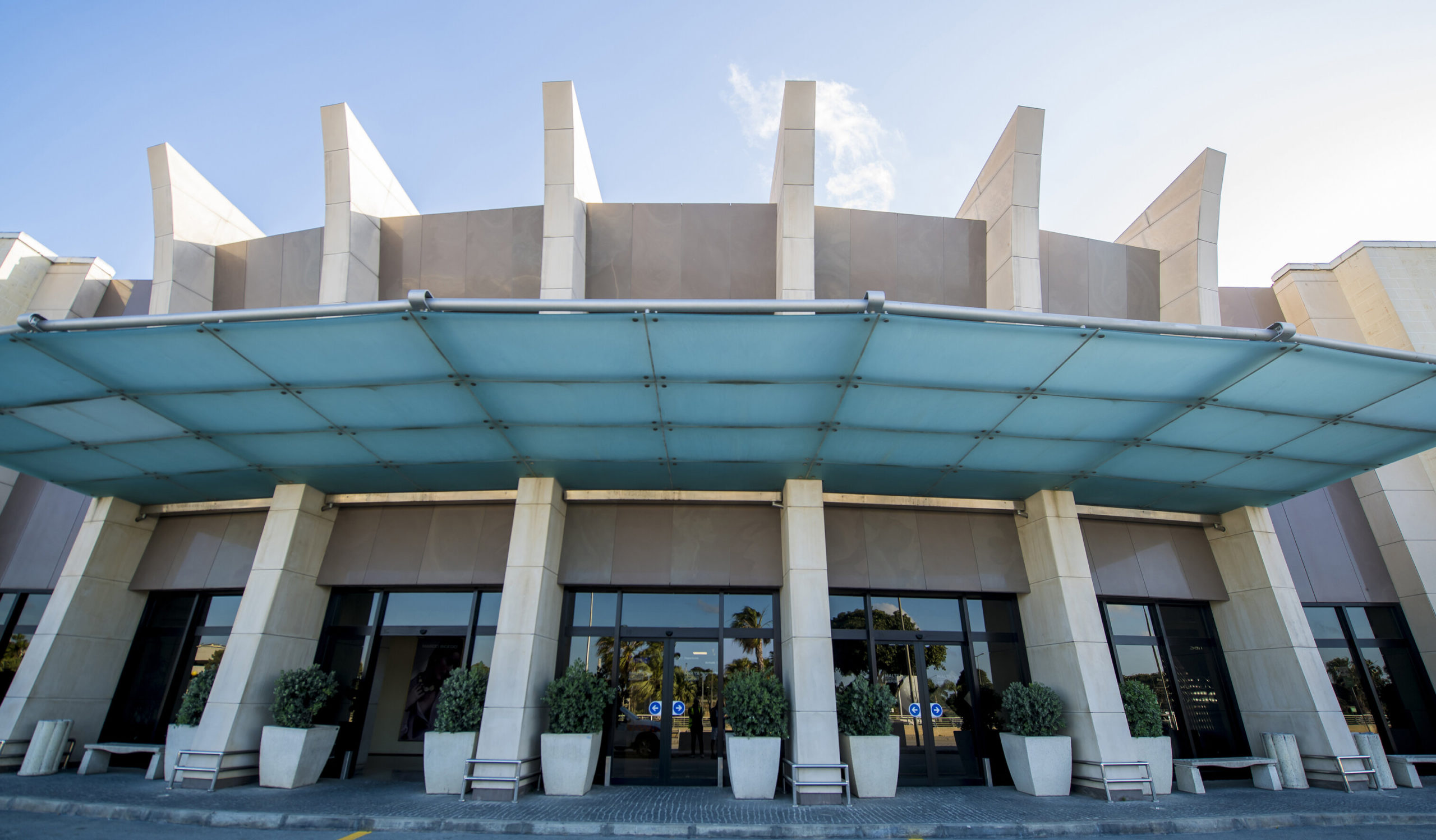Malta International Airport (MIA), has reissued its calls for Malta’s health authorities to digitalise the health document verification process “without further delay”.
Responding as photos circulated in local media and on social media this afternoon of a packed arrivals terminal, the airport said it was aware of the “unacceptable” situation, and said it “deeply” regrets inconvenience and anxiety suffered by guests caught up in the queues.

“This afternoon’s queues at arrivals clearly show that the current paper-based checks are clearly inadequate and untenable”, MIA said.
“Furthermore, we appeal for stronger legislation to enforce the use of digital health declarations and certificates by travellers which will, in turn, facilitate health screening processes on the ground”.
According to reports, the situation at the airport was so bad that people were clapping every time a person made it through the arrival lounge.
The need for a digital certificate has long been emphasised by stakeholders in the aviation and tourism industry.
Speaking to BusinessNow.mt in March, Charles Pace, one of Malta’s foremost aviation experts and Director-General for Civil Aviation at Transport Malta, predicted that if a streamlined system wasn’t introduced in time for the summer restart of tourism, airports would struggle to handle increased passenger loads.
“We would have delays, aeroplanes waiting hours for turnarounds. The airports of today, with increased numbers, are not equipped for this level of passenger”, he foresaw.
It does seem like a more efficient, digital system is on its way, however.
The European Parliament in recent weeks voted to adopt the EU Digital COVID Certificate for international travel, which is expected to be available from 1st July.
Certificates will be issued free of charge by relevant national authorities in the form of either a digital or paper document featuring a QR code, and will contain information on a travellers vaccination status and COVID-test results, amongst pieces of information.
Currently, for most travellers to enter Malta, either a local vaccine certificate or a negative PCR test taken within 72 hours is required to be presented.
Employers take umbrage at video promoting public sector’s flexible work arrangements
The video outlines a range of flexibility options available to public sector employees
Malta’s inflation eases to 2.5% in January as food prices remain main driver
While overall inflation continued to moderate at the start of the year, price pressures remain uneven across categories
Final call for food and beverage manufacturers to exhibit at SIAL Paris
SIAL Paris is one of the world’s leading international food and beverage exhibitions






